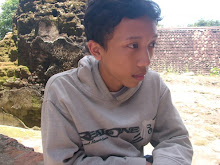Bali Art and Culture on European Tour
The Gigir Manuk Cultural Dialogue in cooperation with the Indonesian Department of Culture and Tourism, the Bali Tourism Authority and the Bali Tourism Board are conducting a road tour of Balinese Art & Culture to Europe from November 11-27, 2006.
Land Under the Rainbow
The cultural program, entitled "Land Under the Rainbow", will form the backdrop for a series of cocktail receptions hosted for the international travel industry, during which art & cultural performances by the renowned Bajra Sandhi Group will be presented during visits to the following European cities:
1.
Brussels and Antwerp,
2.
Belgium Den Haag, The Netherlands
3.
Luxemburg
4.
Paris, France
5.
Aachen, Germany
Bajra Sandhi Performance Troupe
Founded in 1991, the Sanggar Seni Kreativitas Bajra Sandhi, more commonly known as Bajra Sandhi, is a group of Balinese artists who emphasize the spiritual connection between God and the
arts. Striving for purity, truth and beauty through the arts - the troupe is comprised of 14 performers who alternate roles as dancers, musicians or singers " depending on the number being presented.
Past performance have brought the group to Athens, Greece where they performed in events paralleling the opening of the 2004 Olympic Games; to Hanoi where they helped celebrate the 50th anniversary of diplomatic relations between Indonesia and Vietnam; and to numerous performance venues across Indonesia.
Among the highlights of the coming European tour, the group will present:
1.
Gender Wayang - Music normally reserved as the accompaniment of a shadow puppet performance or for performance at a Balinese rites of passage - the Gender is based on a technically demanding rhythm motif, blending intertwined melodies with lively contrapuntal movements. Resonations created give a shimmering and vibrating quality, extremely rich in overtones, emanating from bronze keys struck with bare wooden mallets utilizing the pentatonic 'Slendro' tuning.
2.
Baris Tunggal Dance - Inspired from the original Baris "Warrior" Dance, the name of this dance derives from the word "baris" meaning rows but also meaning troops of soldiers. With its recent development into a solo performance, the dance now describes the strength and grace of heroic movements of a soldier marching off to war.
3.
Legong Keraton Dance - By legend, the Legong is the heavenly dance of divine nymphs. Of all classical Balinese dances, it remains the quintessence of femininity and grace. Girls from the age of five aspire to be selected to represent their community as Legong dancers. Foremost among the Legong repertoire is the Legong Kraton - formerly reserved for presentation only at Bali's royal courts. Highly stylized, the palace version of the dance enacts a drama performed by three dancers: the 'condong' - a female attendant of the court, and two identically dressed Legong dancers who adopt the roles of royal persons.
4.
Jauk Dance - Taken from Bali's rich tradition of masked dance, the Jauk depicts a crooked and wicked giant king.
5.
Sutasoma - A Balinese tari drama or dance-drama, the Sutasoma tells the story of the birth of Jinapati " the pure soul that arrives on earth with the birth of each newborn baby. Deriving his power from wisdom and peace, Sutasoma defeats the evil giant Purusadha through goodness and enlightenment.
The musical accompaniment in the dance drama derives from the rhythms of traditional lullabies for babies and children, where it at the same time also serves as a divine summon for the unseen 'good' forces to guard the infantile pure souls in this chaotic world.
Friday, January 12, 2007
Bali Tourism
Posted by
Iyandri
at
10:03 PM
![]()
![]()
Subscribe to:
Post Comments (Atom)






0 comments:
Post a Comment